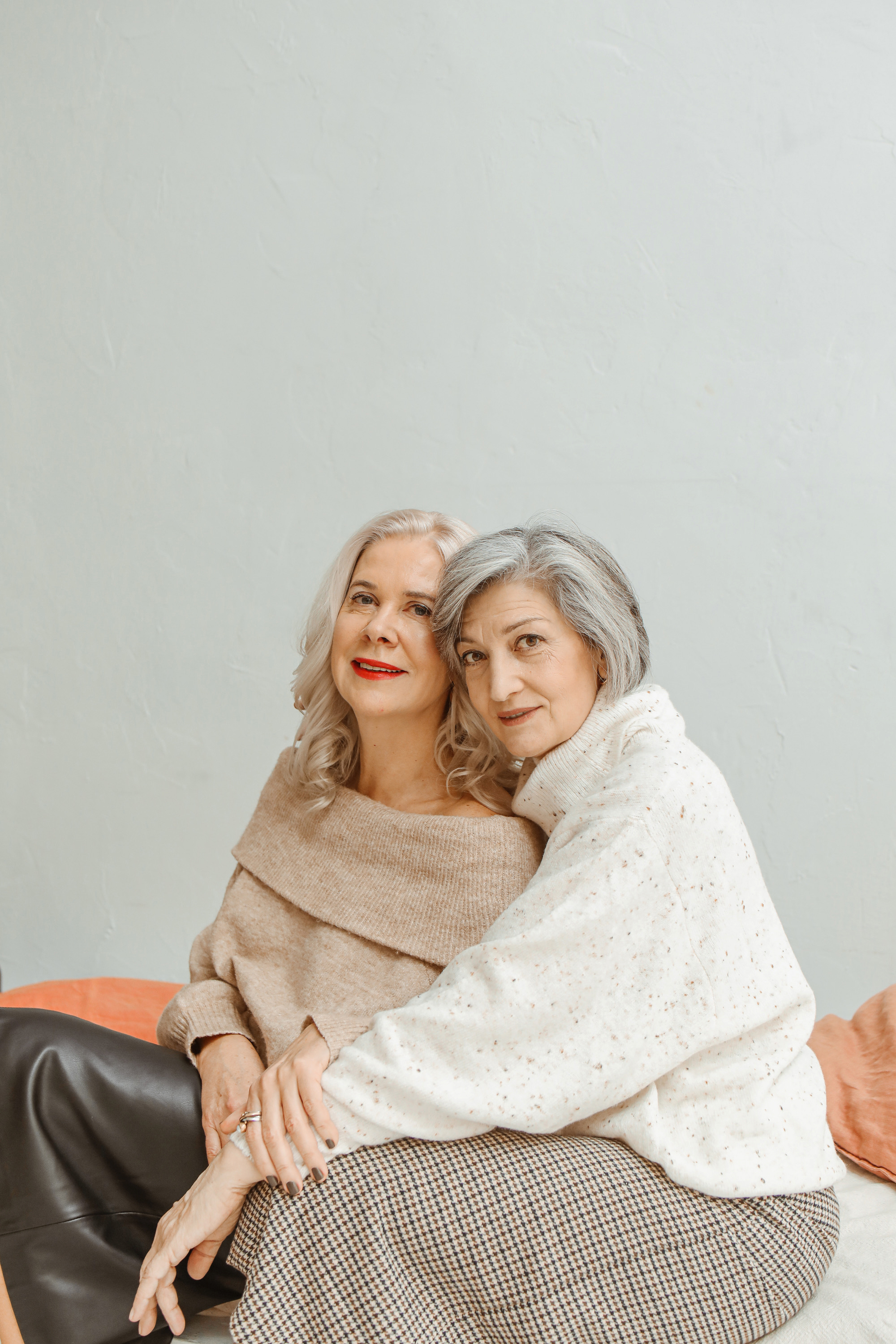Sister Act
5 minute read
‘Lots of people want to ride with you in the limo, but what you want is someone who will ride the bus with you when the limo breaks down.’ Oprah Winfrey
I’m 12-years-old standing in front of a class, all eyes trained on me. I’m wearing a uniform that suddenly feels too tight as my teacher points her finger in my direction asking me to recount where we are in our books. Obviously I wasn’t listening, I was too busy drawing hearts on my friend’s copybook. My friend tugs at my skirt and points at a passage in the book. “You were talking about volcanoes,” I quip, smugly. She has rescued me like I have done for her on so many occasions since we met when we were four-years-old, a friendship that has endured break-ups, career highs, and lows, moving countries and countless amounts of borrowed knickers. I am lucky to have a core group of wonderful friends that have seen me through some choppy waters. We have friendships that riff on a low-slung thrum of familiarity akin to siblings, without as many arguments. Over the years those friendships and bonds have shifted, the time we spend together has changed but ultimately how we feel about one another hasn’t. Female friendships are powerful, they don’t have to be sexual to be intense love affairs – the fallout of a breakup with a female friend can be more traumatic than that of a romantic one; there’s rarely a tearful goodbye or a big talk, it just hurts like hell.
I recently watched the Sex And The City reboot And Just Like That and realised how much I missed the foursome (now threesome), their frank, playful banter, and the sight of Carrie’s closet. It’s been over two decades since SATC aired, a show that went beyond standard chick-flick fare and championed the power of the female friendship, reminding us that love and fulfilment can come in different guises, not just reserved for a romantic relationship and debunking the cliché of a happily ever after. These women lifted each other up, they told each other the truth, they supported each other. They were, in the words of Charlotte, ‘each other’s soul mates’.
My mother used to say, men come and go but your friends, they’re the ones who’ll be with you to the end. She was right. The platonic relationships women have with other women are some of the most significant of our lives. Any woman who has borrowed her friend’s knickers, stayed up until 5am while her heartbroken friend cried into her chip butty, held her friend’s hair whilst she got sick, spent six hours in a car together making up songs about poo (my mother should be canonised for enduring that alone), or rescued her from an embarrassing moment will understand the force of a female friendship. I know that without my friends regular highbrow jokes and memes on WhatsApp, without their enthusiasm for my fashion choices, weekend plans and career trajectories, I would feel, well, a bit hollow.
Women know how to be friends, they understand there is a continuing struggle for our sex to be seen and valued and they know how to nurture.
We share experiences, humiliations and humour in a way that men don’t. The conversations we have with our female friends are not shared with anyone else, we know each other’s darkest secrets and fears and in midlife, those relationships are more important than ever, crucial to our mental health and wellbeing. They fill the gaps as nests empty, as we become squeezed from all sides between elderly parents and young children; they are like restorative mugs of tea or wine. Studies have found that women were genetically wired to befriend and tend to people in times of stress while men were more likely to exhibit a fight-or-flight response. Men stand protectively back-to-back, while women side-by-side. It doesn’t make us superior, just different.
It might seem frivolous to say female friendship is having a moment but since the #metoo movement women empowering women is everywhere. Movies like Little Women, Pitch Perfect, Animals, even Frozen and TV Shows Girls and Big Little Lies depict sisterhood with storylines that put women’s relationships centre stage. Of course, Thelma and Louise – that light-hearted female buddy pic with friendship at its core – was ahead of the curve, moving stereotypes forward but stood alone at the time as a beacon for women’s real lives and freedom. Historically women’s friendships have been undermined by an obligation to a husband and family. With the women’s movement, there was a realisation that there was strength in numbers. Thankfully, nowadays, the landscape has shifted even more and women are stepping up and forward; we are being seen with the help of each other.
Author Kate Leaver says in her book The Friendship Cure “Women make each other more resilient because, when female friendship is done right, it is this astounding source of confidence, reassurance, comfort, joy and candour that can truly guide you through life.” My good friend Jo often jokes that she and her female friends would be better off living together in a commune, without the men. We joke but I won’t deny I’ve spent more than a few minutes dwelling on that thought. If I had to choose I’d more often put a boozy lunch with my girlfriends before a date night. Sure, those friendships are not always straightforward, rose-tinted Thelma-and-Louise-type relationships but the good ones endure and if the pandemic has taught us anything it’s how much we need people and connection. Our female friendships can be noisy and flamboyant or subtle and nurturing and, while maybe not as stylish as Carrie et al, just as enriching.
Orla Neligan, December 2021
what do you think? Tell us in the comments below…
join the conversation
share and comment below, we’d love to hear your thoughts…











